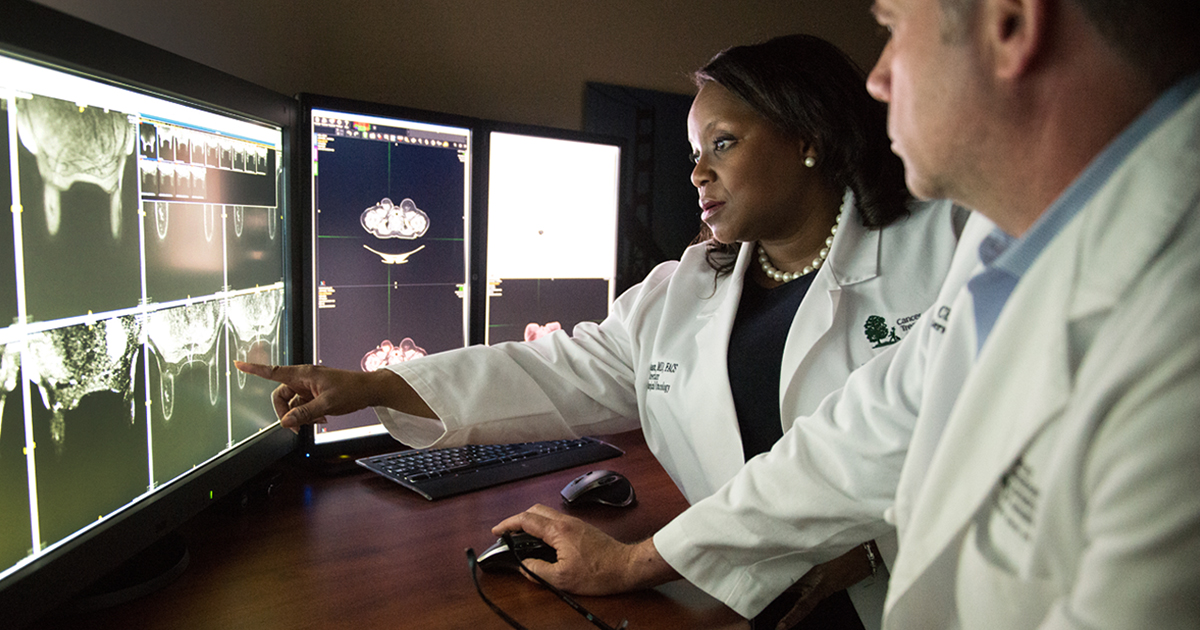Does Pre-Cancer Mean I’m Going to Get Cancer?
This blog was originally published by Cancer Treatments Centers of America on December 20, 2018, here.

Every year, thousands of people are diagnosed with pre-cancerous conditions, news that may induce fear and panic in those receiving it. While pre-cancer that goes unchecked may ultimately become cancerous, it’s not a guarantee and, in many cases, not even likely. “ No one dies of pre-cancer,” says Justin Chura, MD, Chief of Surgery & Director of Gynecologic Oncology and Robotic Surgery at our Philadelphia hospital. “It’s a very treatable condition, if it even needs treatment at all. A pathology report may indicate carcinoma in situ. When patients, and even some clinicians, see the word carcinoma, they get misled into thinking they have cancer. Pre-cancer means there are cells that have grown abnormally, causing their size, shape or appearance to look different than normal cells.”
Whether abnormal cells become cancerous is, in many cases, an uncertainty. Some of the variables are known, others are not. So what exactly does it mean to be told you have a pre-cancerous condition? Does it increase the risk of getting cancer? Are there any prophylactic (preventative) measures that can be taken to reduce the likelihood that a cancer diagnosis is in your future?
According to Elizabeth Min Hui Kim, MD, MPH, FACS, Director of the CTCA Breast Cancer Institute, pre-cancer is becoming an outdated term in breast oncology as well as other specialties, because the condition is more complex than a blanket term can describe. “We’re understanding these precancerous cells have certain genes, and we’re using technology to understand how they differ from each other and have different risks based on their biology,” she explains.
Citing the current body of literature—which includes a 1985 study that re-evaluated 10,366 breast biopsies performed on women at three Nashville hospitals, a 2007 Mayo cohort study, a 2012 study that evaluated breast cancer risk based on atypia type, a 2012 study on the management of high-risk breast lesions and a 2016 study on which Dr. Kim was a lead author—Dr. Kim says doctors can classify the condition into one of three categories: non-proliferative disease, proliferative disease without atypia and proliferative disease with atypia.
How to approach a non-proliferative disease diagnosis depends on the person’s cumulative risk of developing breast cancer, which is a risk assessment based on a variety of factors, including but not limited to family history and breast density as well as personal risk factors that may be modifiable, like body mass index (BMI) and tobacco or estrogen use. If the cumulative risk is determined to be greater than 20 percent, Dr. Kim says enhanced screenings (having both a mammogram and a breast MRI, for example) may be recommended.
Diagnoses in the proliferative disease category indicate that abnormal cells are growing faster than normal cells, but not as fast as cancer cells. “There is abnormal growth or size of the cells, or the cells might be larger than normal,” Dr. Kim explains. An example of a proliferative disease would be an intraductal papilloma of the breast, which is like a polyp. Surgical removal of the area may be advised, depending on the patient.
Proliferative disease with atypia indicates high-risk lesions (abnormal cells) that are growing faster than normal. Depending on the cumulative risk, a form of medical treatment called anti-estrogen therapy or surgery may be recommended.
Modern medicine allows many “pre-cancerous conditions” to be found early. A pap test detects cervical dysplasia (abnormal cells in the cervix), sometimes referred to as pre-cancer. Low-grade dysplasia is typically not treated unless it persists for a couple of years, Dr. Chura says, while high-grade dysplasia would require a biopsy. The biopsy results would dictate the next steps. A colonoscopy detects colon polyps, and skin cancer screenings by a dermatologist are credited with identifying for removal many skin cancers that would have metastasized (spread).
“If you’re diagnosed with some type of dysplasia, whether in the esophagus, colon, cervix, etc., it doesn’t mean you will develop cancer. It means you will need some type of surveillance and treatment plan to manage it,” Dr. Chura says.
The takeaway is that a pre-cancerous condition does not mean you have cancer. It simply means you have an increased risk of cancer, which should serve as a reminder to stay current with medical visits and screening tests and communicate concerns or changes to your doctor.
“These are easily solvable problems and can be addressed with treatments that are a lot less invasive and have a lot more options than if the patient had a malignant disease,” says Dr. Kim. “It’s not cancer until proven otherwise. And if it is, they’ve caught it really, really early.”



